A huge power outage plunged a British holiday hotspot into complete darkness late on Tuesday.
The blackout began at around 5:30pm in La Palma following a generator failure, according to the electricity company Endesa, which reported an error in the generator at the Los Guinchos plant, in Breña Alta.
But Spain‘s national grid has confirmed that power had been fully restored to the Canary Islands hotspot within three hours, after the blackout affected some 82,000 people.
Earlier, Endesa claimed it does not expect power to be fully restored in the short-term, leading the Canary Islands emergency 112 service to activate the Canary Islands Emergency Plan (PLATECA) in a state of ‘alert’.
‘The Canary Islands regional government has activated the Canary Islands emergency plan in response to the ‘zero power’ alert on La Palma,’ the emergency services announced.
The President of the Canary Islands, Fernando Clavijo, also took to social media to confirm he was following the situation.
‘In coordination with the administrations of La Palma within the framework of the Canary Islands Emergency Plan that we activated this very afternoon following the registration of the energy blackout on the island and continuing the efforts to restore energy in the shortest possible time,’ he wrote on X.
According to local reports, firefighters were called to assist people who were left trapped in elevators, while several areas across La Palma were left with no power.

The Spanish island of La Palma, in the Canary Islands, was left without electricity according to emergency services. Pictured: Houses and buildings in Los Llanos de Aridane, on the Canary island of La Palma
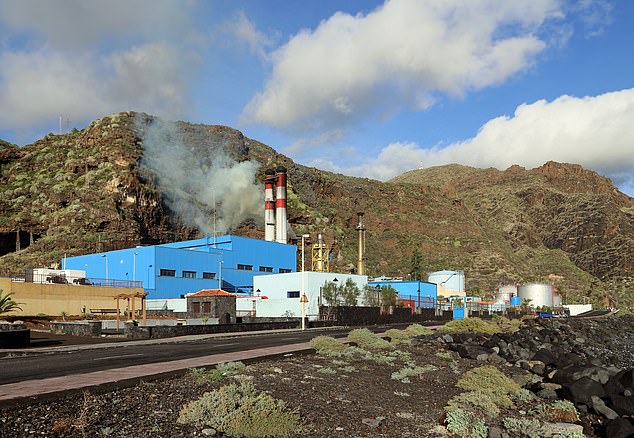
The blackout began at around 5:30pm in La Palma following a generator failure, according to the electricity company Endesa, which reported an error in the generator at the Los Guinchos plant, in Breña Alta (pictured)
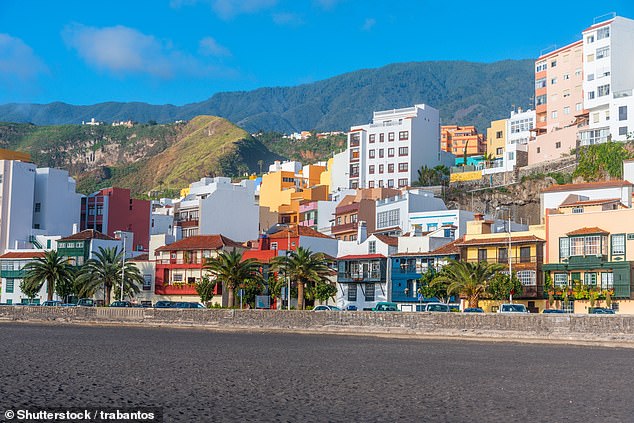
Spain’s national grid has confirmed that power had been fully restored to the Canary Islands hotspot within three hours, after the blackout affected some 82,000 people. Pictured: Houses behind the central beach at Santa Cruz de la Palma, Canary islands, Spain
Following the sudden outage, the Minister of Territorial Policy and Democratic Memory, Ángel Víctor Torres – who stated that he was informed of the energy blackout after the meeting of the Territorial Council of Democratic Memory held in Zaragoza – indicated that the Government of Spain is aware of the evolution of the situation.
‘Hoping that the energy is restored as soon as possible, I send all my support to the people of La Palma,’ the minister said on X.
La Palma’s president Sergio Rodriguez also reacted to the failure by describing La Palma as an island ‘which is not in the first world’ and demanding measures from Madrid and the region’s government.
He said: ‘The power station we’ve got is obsolete and slows down our development.’
Reports around 8.30pm said electricity had been re-established to around 30 per cent of the customers affected by this afternoon’s outage.
La Palma is heavily reliant on fossil fuels, particularly diesel, for its electricity generation due to its isolated location and lack of interconnection with the mainland or other islands.
It comes after a series of blackouts have hit the island in recent months.
Santa Cruze de Palma, Los Llanos de Aridane and El Paso have all experienced recent, unrelated, power outages.
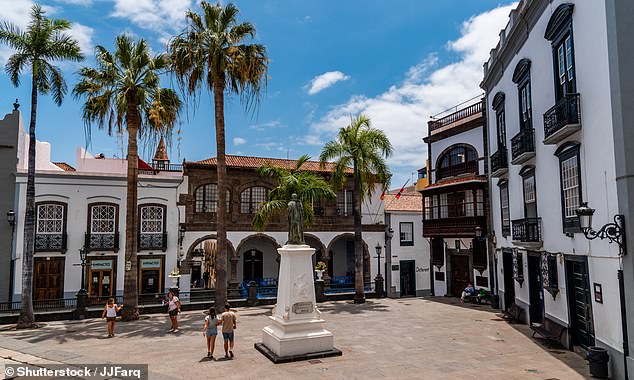
La Palma, a generally vibrant island, was thrown into darkness
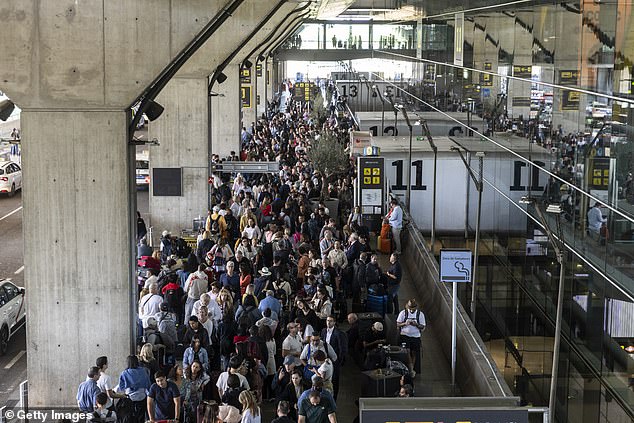
People queue for a taxi at Barajas Airport on April 28, 2025 in Madrid, Spain
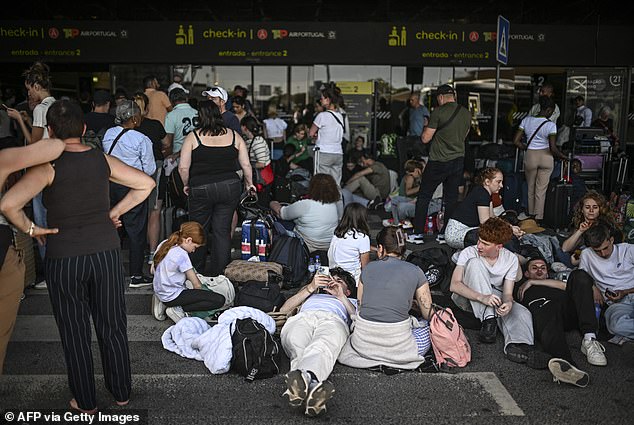
People with their luggage wait outside Humberto Delgado airport following a general electricity shutdown in Lisbon on April 28, 2025
The latest of these, on May 8, left the power out for hours and affected several of the eight municipalities in La Palma.
Spain’s Energy Minister Sara Aagesen today urged private electricity companies to speed up sharing information needed to identify the causes of the worst ever blackout to hit Spain and Portugal.
More than a month after one of Europe’s biggest electricity system collapses left around 60million people in the two countries without power, the cause has yet to be determined and the blame game has intensified.
‘At the beginning, when we requested information, it arrived very quickly,’ Aagesen told reporters from Nice, France, where she was attending a UN conference.
‘Now we’re in a situation where information arrives in dribs and drabs, much more slowly.’
She acknowledged though that the information required was now more detailed and, at times, more complex.
‘But I insist, I continue to call for this information to be delivered as soon as possible so we can identify the causes and implement the necessary measures,’ she said.
Spain’s energy ministry is leading one of the probes looking into the April 28 events, which sent investigators from the country’s cybersecurity and intelligence services to private energy companies’ premises to gather information.












